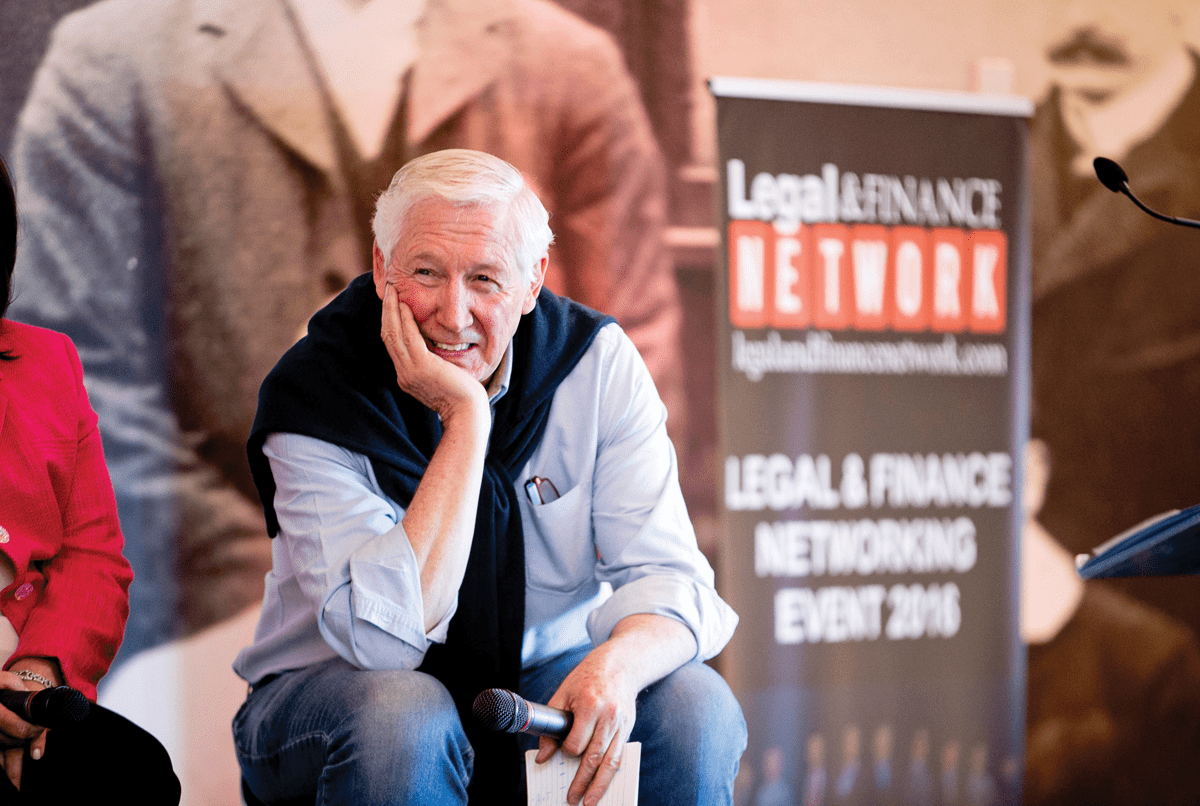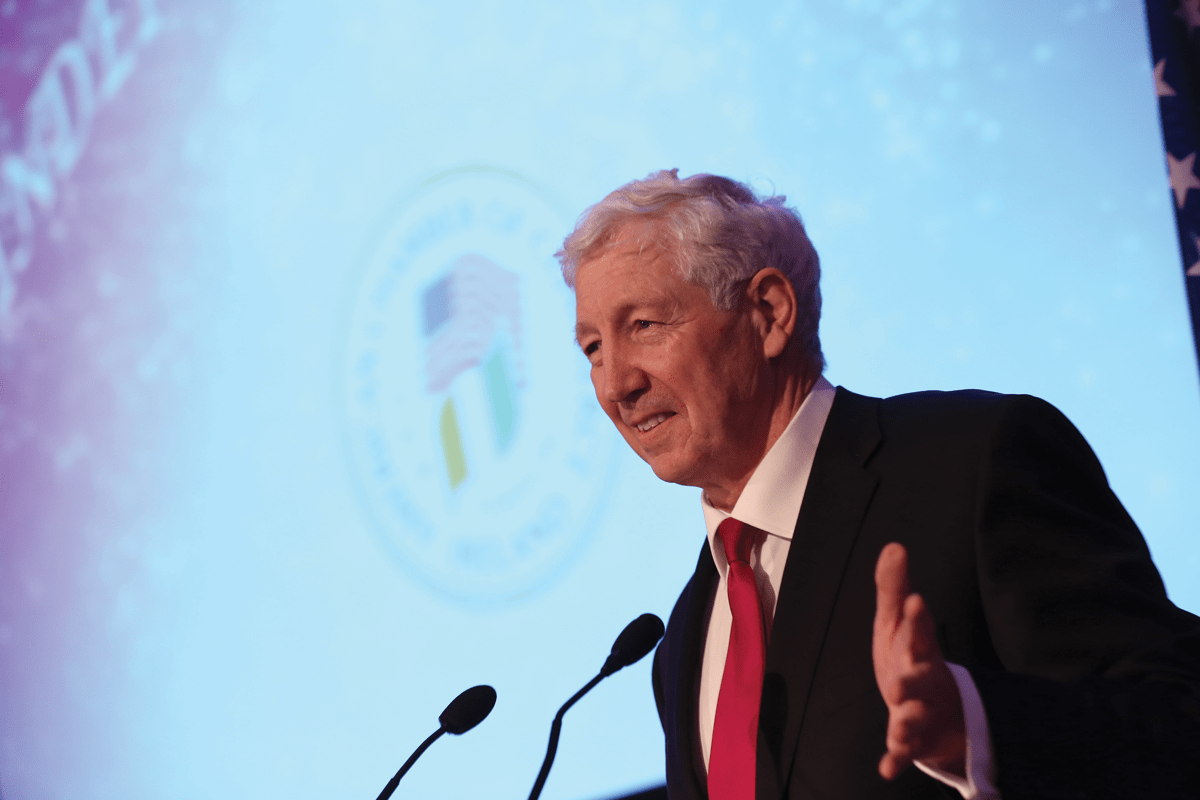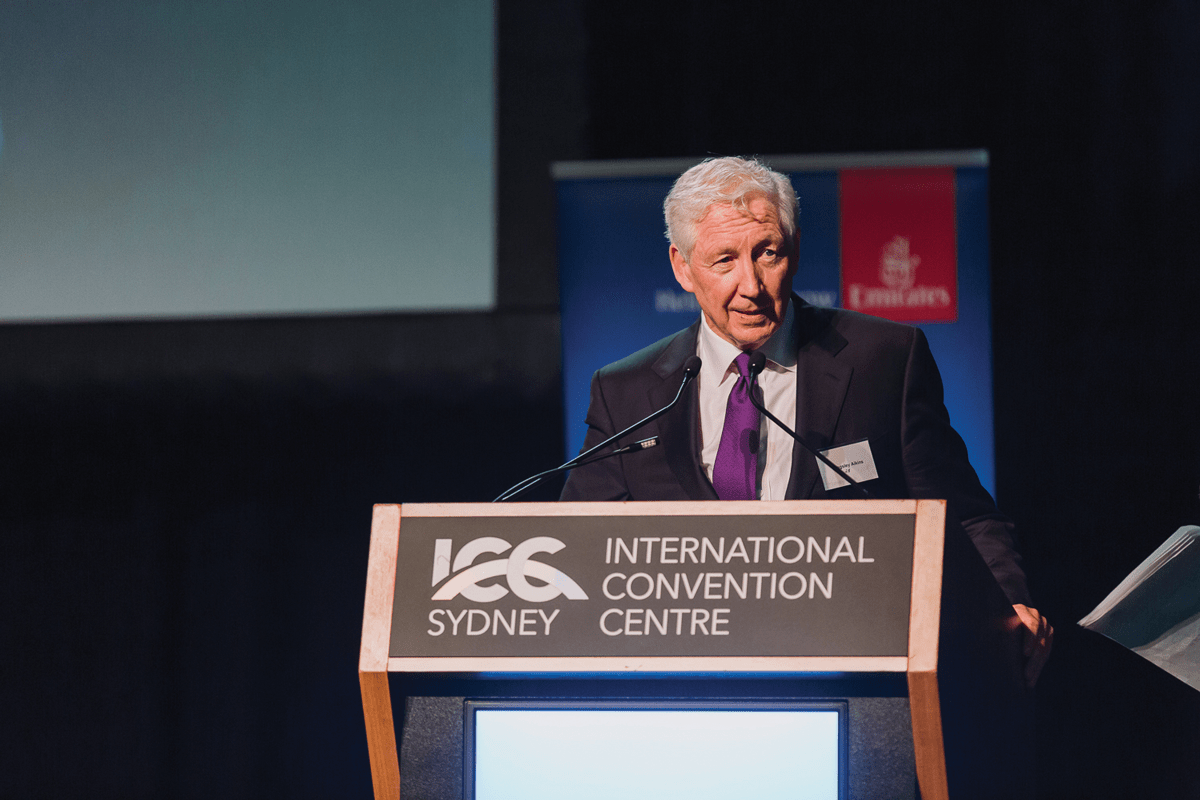Mentor: Kingsley Aikins
 Kingsley Aikins, CEO, The Networking Institute
Kingsley Aikins, CEO, The Networking Institute
Throughout his extensive career, networking has been at the heart of everything CEO of The Networking Institute Kingsley Aikins has done. Since Covid-19, he has discovered a ‘whole new tribe’ in adapting to the virtual world we all now operate in, writes Eithne Dunne.
To say that Kingsley Aikins knows a thing or two about networking would be an almost laughable understatement. The Networking Institute CEO lives and breathes it, and has done for decades. It’s a craft he honed through many years working on trade promotion, philanthropy and diaspora engagement all over the world, perhaps most notably during his 21-year stint as head of The Ireland Funds in the US, during which he raised US$250m for Irish projects. He also spent a decade in Sydney, Australia working for the Irish Trade Board and IDA Ireland, and received a CBE for his work on British-Irish relations. Now back in Dublin for what he calls the ‘third act’ of his career, Aikins is passing on his networking knowhow to both individual and corporate clients through The Networking Institute, which he founded in 2010. Deceptively powerful and oft-underestimated, networking is a skill you sideline at your peril. And it’s not just Aikins who beats this particular drum; various research studies have suggested that it’s networking – and not necessarily knowledge directly related to your job – that turns a mediocre career into a dream-fulfilling one.
As Aikins puts it, it’s the “glue that makes everything happen”. It’s also, he says, an essential key to survive and thrive in challenging times – just like the ones we find ourselves in now. Radical rethink Covid-19 turned The Networking Institute on its head earlier this year; the business went to zero overnight in February, losing all of its workshop and presentation contracts in one fell swoop. Cue a fundamental rethink of how the business operated, and what the CEO calls a ‘low-tech and high-tech’ approach. “We first audited our network, looked at our key connections and started making calls and sending emails to let people know what we were doing. We then embraced LinkedIn as our social media of choice. The reason is that, globally, over 700 million people have made information about their work, education and interests available there,” he says. The high-tech aspect of the company’s approach saw it publishing articles and videos on LinkedIn and making its first foray into what would become its saving grace – webinars. It has now done 80 of these since March, including one with Shannon Chamber.
 Kingsley Aikins, CEO, The Networking Institute
Kingsley Aikins, CEO, The Networking Institute
The institute’s experience this year is proof positive that there are alternative ways of doing things, even if they’re not your first choice, and the same can be said for networking successfully in the times we live in. “We just have to network differently, and use all the online opportunities we have,” says Aikins. “That’s why ‘zooming’, which no one had heard of before, is now in the lexicon. There’s turbulence right now but there’s also opportunity.” In a classic example of the power of networking, Aikins was doing a webinar for the Singapore Chamber of Commerce earlier this year, and one of the people on the call was an Irish lawyer working for an international law firm there. Aikins got talking to him, secured an introduction to a contact in the law firm’s London office and, two conversations later, is planning six webinars for that firm.
“If I had contacted this law firm directly, I wouldn’t have got past first base,” he says. “But now we have a substantial amount of work from them.” This speaks to what Aikins has dubbed the “whole new tribe” he has made connections with this year, despite – or perhaps because of – Covid-19. Personal branding Aikins firmly believes that networking is an essential tool for anyone with ambitions for their careers, and notes that many companies are now recognising the importance of hiring well-connected people. “They want to ‘hire and wire’, ie hire people, and wire into their network; they see this as an asset,” he says. So when you go to a job interview, don’t kid yourself that they’re just looking for qualifications, experience and a firm handshake. They also want to know who you know.
“This is the world of the gig economy, and you have to think about your personal brand. You need to become known for something, build a reputation. Your reputation is what someone says about you when you’re not around,” notes Aikins. He says people today may move through 20 different jobs in their careers, many of which won’t be advertised but filled through connections to the right people. “Your network is portable, it does not go out of date and it goes with you throughout your career.” Lessons learned When Aikins first went to Sydney all those years ago, he knew no-one, but was determined to practise what he now preaches by building a strong and diverse network from the ground up. He started with a tenuous connection (his mother’s neighbour’s son, who lived there at the time), asking him for an introduction to the local Irish business network.
 Kingsley Aikins, CEO, The Networking Institute
Kingsley Aikins, CEO, The Networking Institute
“He said there was none, so 13 of us got together and started one. We called it the Lansdowne Road Club, because we used to play rugby,” he recalls. The club dropped ‘Road’ from its title somewhere along the way, but it thrived, and last year Aikins flew to Sydney to help mark its 30th anniversary. The Lansdowne Club now has 2,000 members and is the biggest Irish business network in the world. The club’s formation was also the impetus for major opportunities in Aikins’ career. As he says himself, “one conversation can change your life”; in his case, that conversation was with legendary businessman and former head of Independent News & Media Tony O’Reilly. Aikins had written to O’Reilly asking him to head up the Lansdowne Club. “He said yes, asked me was I free for lunch, and I ended up working for him for 21 years on The Ireland Funds.” He learned much about networking from O’Reilly and others, including The Ireland Funds co-founder and former US Ambassador to Ireland, Dan Rooney.
“Hang around a good networker, and guess what you’ll become? A good networker,” notes Aikins. When reflecting on your existing network, Aikins says the question to ask is: does my network reflect the diversity of the society I live in? “For most, the answer is no. We all have a tendency to hang around with people like ourselves, but it’s really important that you bring elements into your life that allow you to meet non-likeminded people.” That shouldn’t be too difficult, even if your network is mainly based in Ireland, particularly the capital. “When I grew up in Dublin, it was male, pale and stale,” says Aikins.
“Now 33% of the working-age population here were not born in Ireland, so it’s an intensely cosmopolitan city.” A networking culture Companies that recognise the power of networking need to embrace it by training their staff in it, and encouraging them to develop an online identity, in Aikins’ view. “They should budget for this, and open up their organisation to lots of different types of people. Before Covid-19, there was a big problem with the attraction and retention of talented staff. Firms have to create an enabling environment which makes it attractive for people to be there. In the old days, companies outlived people, now people outlive companies.”
Businesses that have taken this on board subscribe to the notion of ‘network intelligence’ – in other words, that there are more smart people outside your company than inside, and you can tap into this resource. You don’t have to become a whizz at networking overnight, far from it. Even the smallest moves towards a better network can have an impact far beyond the effort it takes to make them. “Life is a game of inches, and the difference between success and failure can be tiny,” says Aikins. He’s a firm believer in the theory of marginal gains – the idea that small nudges in a certain direction can tip you over into much larger successes. Aikins himself experienced this often when working with IDA Ireland trying to attract foreign direct investment (FDI). “If we got an FDI deal, great, but if we came a very close second, we got nothing. If you improve what you’re doing by 1%, you don’t get 1% more, you get 100% more,” he says.
